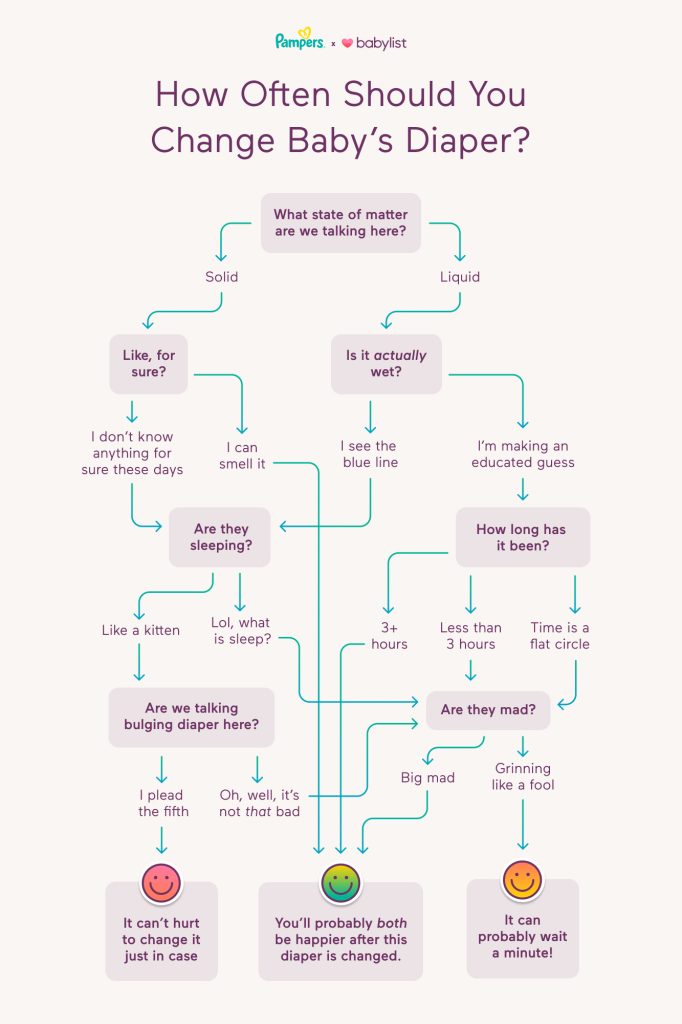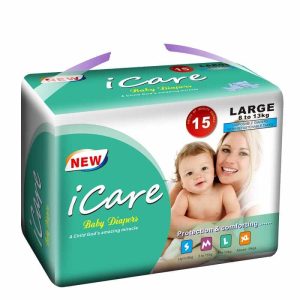Change your baby’s diaper at night every 2-3 hours or immediately if it is soiled. This helps prevent rashes and discomfort.
Nighttime diaper changes are crucial for your baby’s health and comfort. Babies have sensitive skin, making them prone to diaper rashes if left in a wet or soiled diaper for too long. Regular diaper changes ensure they stay dry and reduce the risk of skin irritation.
It also helps maintain their sleep quality, as a wet diaper can wake them up. Parents should monitor their baby’s needs and adjust the frequency of diaper changes accordingly. Using high-absorbency diapers at night can also minimize disruptions. Remember, keeping your baby clean and dry is essential for their well-being and comfort.
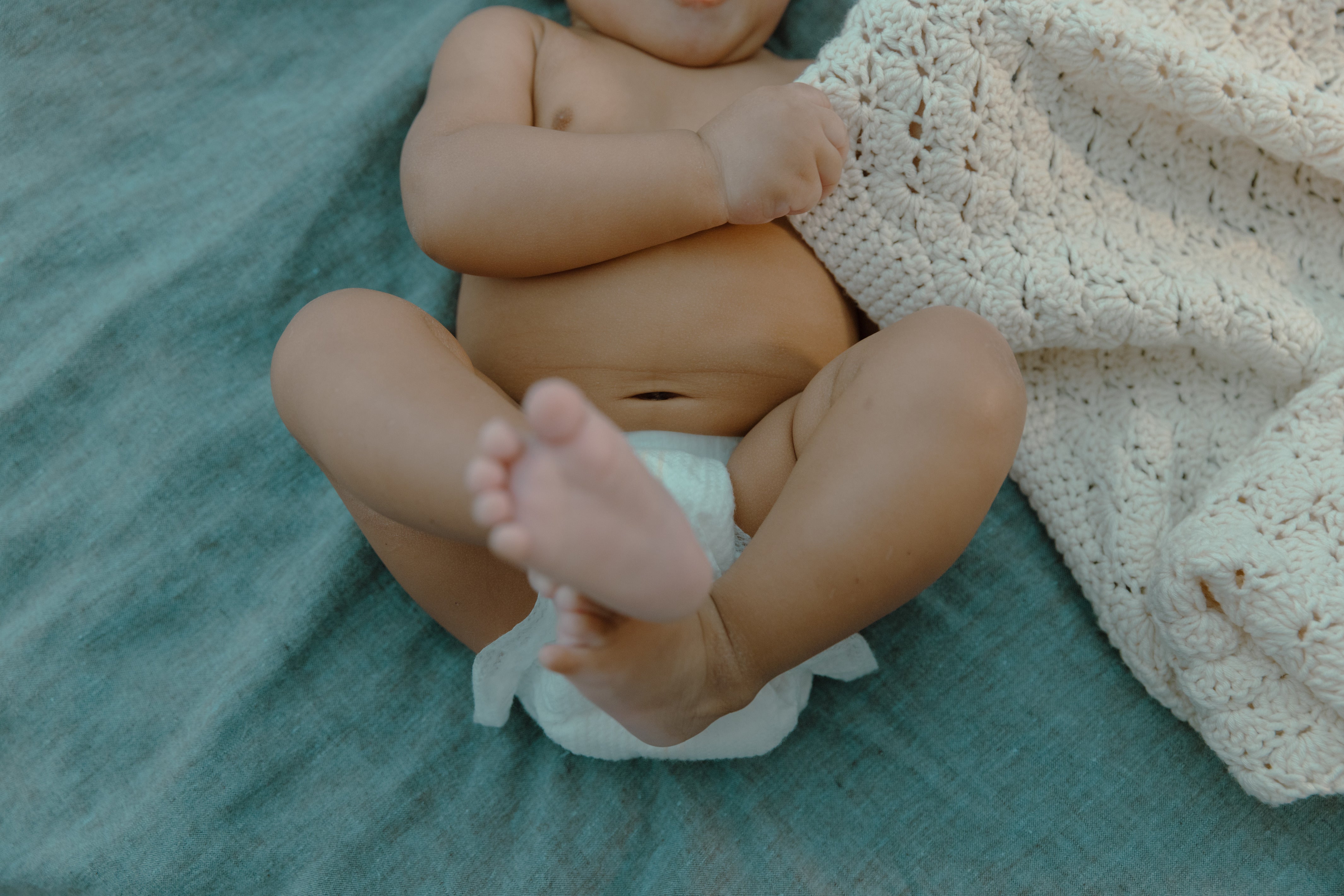
Credit: www.nanit.com
Importance Of Nighttime Diaper Changes
Changing your baby’s diaper at night is crucial. It ensures comfort and prevents skin problems. Below, we explore the two main reasons why nighttime diaper changes are essential.
Comfort And Sleep Quality
Your baby needs a dry diaper for a good night’s sleep. Wet or soiled diapers can wake them up. This interrupts their sleep and yours.
Babies sleep better with a clean diaper. They feel more comfortable and secure. This leads to longer and more restful sleep for everyone.
A dry diaper at night can reduce crying and fussiness. This helps everyone in the household get better rest.
Preventing Diaper Rash
Wet diapers can cause diaper rash. Diaper rash makes your baby uncomfortable and irritable. Changing diapers at night can prevent this issue.
Diaper rash can lead to infections if not treated. A dry diaper reduces the risk of skin irritation and infections.
Using a diaper rash cream can also help. Apply it during nighttime changes for extra protection.
Here’s a simple table summarizing the importance of nighttime diaper changes:
| Benefit | Details |
|---|---|
| Comfort and Sleep Quality | Ensures better and longer sleep. |
| Preventing Diaper Rash | Reduces skin irritation and infection risk. |
Signs Your Baby Needs A Diaper Change
Knowing when to change your baby’s diaper at night is important. Your baby’s comfort and health depend on it. Here are the key signs to watch for.
Crying And Fussiness
Crying is a primary sign. Babies often cry when uncomfortable. A wet or dirty diaper can cause crying. Fussiness is another indicator. If your baby is restless, check the diaper.
| Sign | Description |
|---|---|
| Crying | Indicates discomfort from a wet or dirty diaper. |
| Fussiness | Restlessness can mean a diaper change is needed. |
Wetness Indicators
Modern diapers have wetness indicators. These indicators change color when wet. Check the indicator regularly. It helps you know if your baby needs a change.
- Look for color change on the diaper.
- If the indicator is blue, the diaper is wet.
- Change the diaper promptly to prevent discomfort.
Wetness indicators make it easier to keep your baby dry. Always have a fresh diaper ready.
Recommended Frequency For Newborns
Changing your newborn’s diaper at night is crucial. Wet or soiled diapers cause discomfort and disrupt sleep. Knowing the recommended frequency helps ensure your baby stays clean and comfortable.
Feeding And Diaper Changes
Newborns often wake up for feedings during the night. It’s a good idea to check their diaper during these times. A wet or soiled diaper can cause skin irritation. Change the diaper at each feeding to keep your baby dry and comfortable.
| Feeding Times | Diaper Check |
|---|---|
| Every 2-3 hours | Check and change if needed |
| After feeding | Change to prevent rashes |
Newborn Sleep Patterns
Newborns have irregular sleep patterns. They wake up frequently, often every 2-3 hours. Use these times to check their diaper. It helps maintain their comfort and hygiene. Don’t wait for them to cry due to discomfort.
- Check diaper every time they wake up
- Change even if slightly wet to avoid rashes
- Ensure a clean diaper before putting them to sleep
Changing diapers frequently at night ensures your baby sleeps better. This helps in their growth and development.
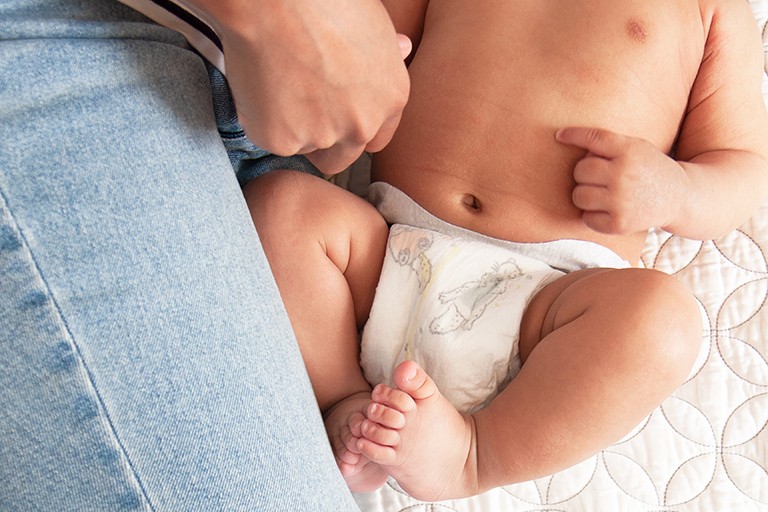
Credit: www.babylist.com
Diaper Change Frequency For Older Babies
As babies grow, their diaper change needs evolve. Older babies often sleep through the night. This raises questions about nighttime diaper changes. Balancing comfort and sleep is key.
Solid Food And Diaper Changes
Once babies start eating solid food, their bowel movements change. Solid food can make stools more solid and frequent. This impacts how often you need to change diapers.
Older babies might have fewer but more significant bowel movements. You should check their diapers regularly. This is especially important if they have had solid foods for dinner.
Here’s a simple guide:
- Check the diaper before bedtime.
- Consider a diaper change if stools are present.
- Use diapers designed for overnight use.
Sleep Training Considerations
Sleep training can affect diaper change routines. Consistent nighttime routines help babies sleep better. Frequent diaper changes might disrupt sleep.
During sleep training, try these tips:
- Change the diaper before bedtime.
- Use high-absorbency diapers to last through the night.
- If the baby wakes up, check the diaper discreetly.
Minimize light and noise during nighttime changes. Keep the environment calm to help your baby fall back asleep quickly.
Tips For Easier Nighttime Changes
Changing your baby’s diaper at night can be challenging. To make nighttime changes easier, follow these simple tips. This will help keep both you and your baby happy and rested.
Keeping Supplies Handy
Always have your diaper changing supplies within arm’s reach. This includes:
- Diapers
- Wipes
- Diaper cream
- Changing pad
- Extra clothes
Keep these items organized in a basket or caddy. This allows you to quickly access everything you need. A small night light can help you see without fully waking your baby.
Minimizing Sleep Disruptions
Try to keep the room dim during changes. Use a soft night light instead of turning on bright lights. This helps your baby stay sleepy.
Move slowly and speak softly to avoid startling your baby. Use gentle, soothing motions. Avoid unnecessary steps, and be quick but gentle.
Dress your baby in easy-to-remove clothing. This makes changes faster and less stressful. Consider using a sleep sack with a zipper for easy access.
By following these tips, you can make nighttime diaper changes smoother and less disruptive. This helps everyone get back to sleep quicker.
Choosing The Right Diaper For Nighttime
Ensuring your baby sleeps comfortably through the night requires the right diaper. A good nighttime diaper prevents leaks and keeps your baby dry. Below are key factors to consider for selecting the perfect nighttime diaper.
Absorbency Levels
Nighttime diapers need higher absorbency levels. Regular diapers may not hold enough liquid. Look for diapers labeled as “overnight” or “extra absorbent”. These diapers are designed to handle more wetness.
Many brands offer diapers with multiple layers. These layers help in better liquid distribution. This reduces the risk of leaks and keeps your baby dry for longer hours.
Fit And Comfort
A good fit ensures your baby stays comfortable all night. Diapers should be snug but not too tight. This helps in preventing leaks. Check for elastic waistbands and leg cuffs. These features provide a better fit.
Comfort is also crucial. Look for diapers made from soft materials. This reduces skin irritation and ensures a peaceful sleep for your baby.
| Feature | Importance |
|---|---|
| Absorbency Levels | Prevents leaks and keeps baby dry |
| Fit | Ensures no leakage and comfortable wear |
| Comfort | Reduces skin irritation and ensures peaceful sleep |
Addressing Common Concerns
Parents often worry about nighttime diaper changes. Questions about leakage, diaper rash, and sleep disruptions are common. Let’s address these concerns to help you and your baby sleep better.
Leakage Issues
Nighttime leakage can disrupt sleep for both you and your baby. Choosing the right diaper is crucial. Opt for overnight diapers designed for longer wear. These diapers have extra absorbency.
Make sure the diaper fits well. Gaps can cause leaks. Check the waistband and leg cuffs. They should fit snugly but not too tight. Always point the baby’s penis down if you have a baby boy. This helps direct urine into the diaper’s absorbent area.
Diaper Rash Management
Diaper rash at night can be painful for your baby. Apply a thick layer of diaper cream before bed. It creates a barrier against moisture. Use a cream with zinc oxide for best results.
Keep your baby’s skin dry. Change wet diapers promptly. Consider using breathable diapers. They allow better air circulation, reducing the risk of rashes. Cloth diapers with a stay-dry liner can also help.
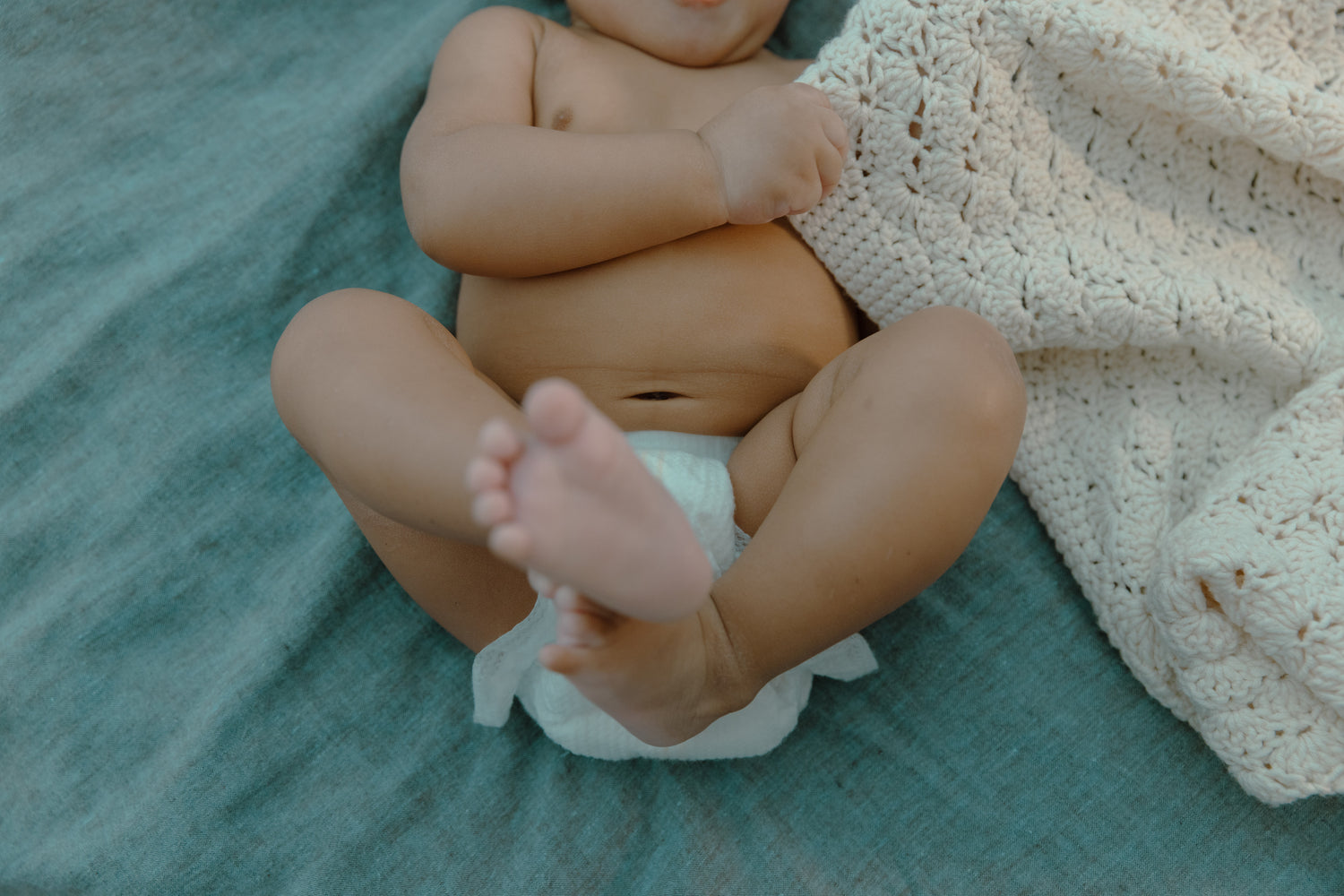
Credit: www.nanit.com
Expert Opinions And Recommendations
Changing your baby’s diaper at night can be challenging. Understanding the best practices ensures your baby sleeps comfortably and stays healthy. Experts provide valuable insights and recommendations on this topic.
Pediatrician Insights
Pediatricians agree on the importance of nighttime diaper changes. Dr. Emily Scott, a renowned pediatrician, suggests changing the diaper at least once during the night. This helps prevent diaper rash and keeps the baby dry.
Dr. John Miller emphasizes checking the diaper before you sleep. A wet diaper can cause discomfort and wake the baby. He advises using high-absorbency diapers for longer sleep intervals.
Pediatricians also recommend gentle diaper creams. These create a barrier and protect the baby’s skin from irritation. Keeping a few nighttime essentials handy can make the process smoother.
Parent Testimonials
Many parents share their nighttime diaper-changing experiences. Sarah, a mother of two, says, “I change my baby’s diaper before I go to bed. It helps him sleep longer and more peacefully.”
James, a new dad, states, “Using a high-absorbency diaper has been a game-changer. We only wake up once for a change, and our nights are much calmer.”
Parents also recommend preparing a small diaper-changing station near the bed. This minimizes disturbances and allows for a quick change. A little preparation goes a long way in ensuring a restful night for both baby and parents.
Frequently Asked Questions
How Often Should You Change A Diaper At Night?
Change your baby’s diaper every 2-3 hours at night. This helps prevent diaper rash and keeps them comfortable.
Is It Okay To Leave A Wet Diaper Overnight?
Leaving a wet diaper overnight is generally fine if it doesn’t bother your baby. Ensure the diaper is absorbent and check for leaks.
Can A Dirty Diaper Affect Baby Sleep?
Yes, a dirty diaper can disturb your baby’s sleep. Change it promptly to keep your baby comfortable and asleep.
What Are Signs To Change A Diaper At Night?
Signs include fussiness, crying, or a strong smell. If your baby wakes up, check their diaper for wetness or mess.
Conclusion
Changing your baby’s diaper at night depends on their age and needs. Monitor their comfort and ensure dryness. Adequate diaper changes reduce rashes and promote better sleep. Trust your instincts and consult your pediatrician if uncertain. Prioritizing your baby’s comfort leads to restful nights for both of you.

